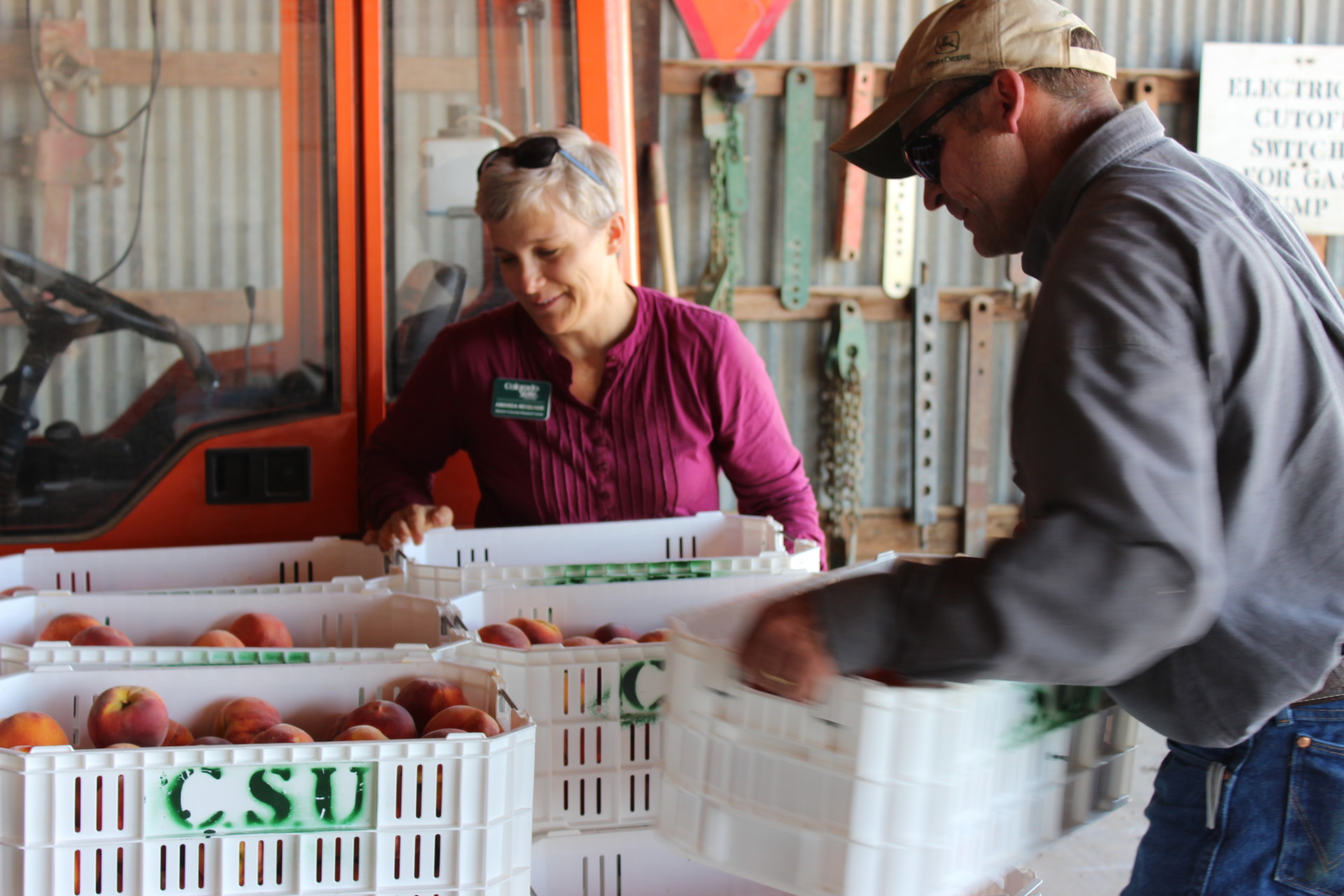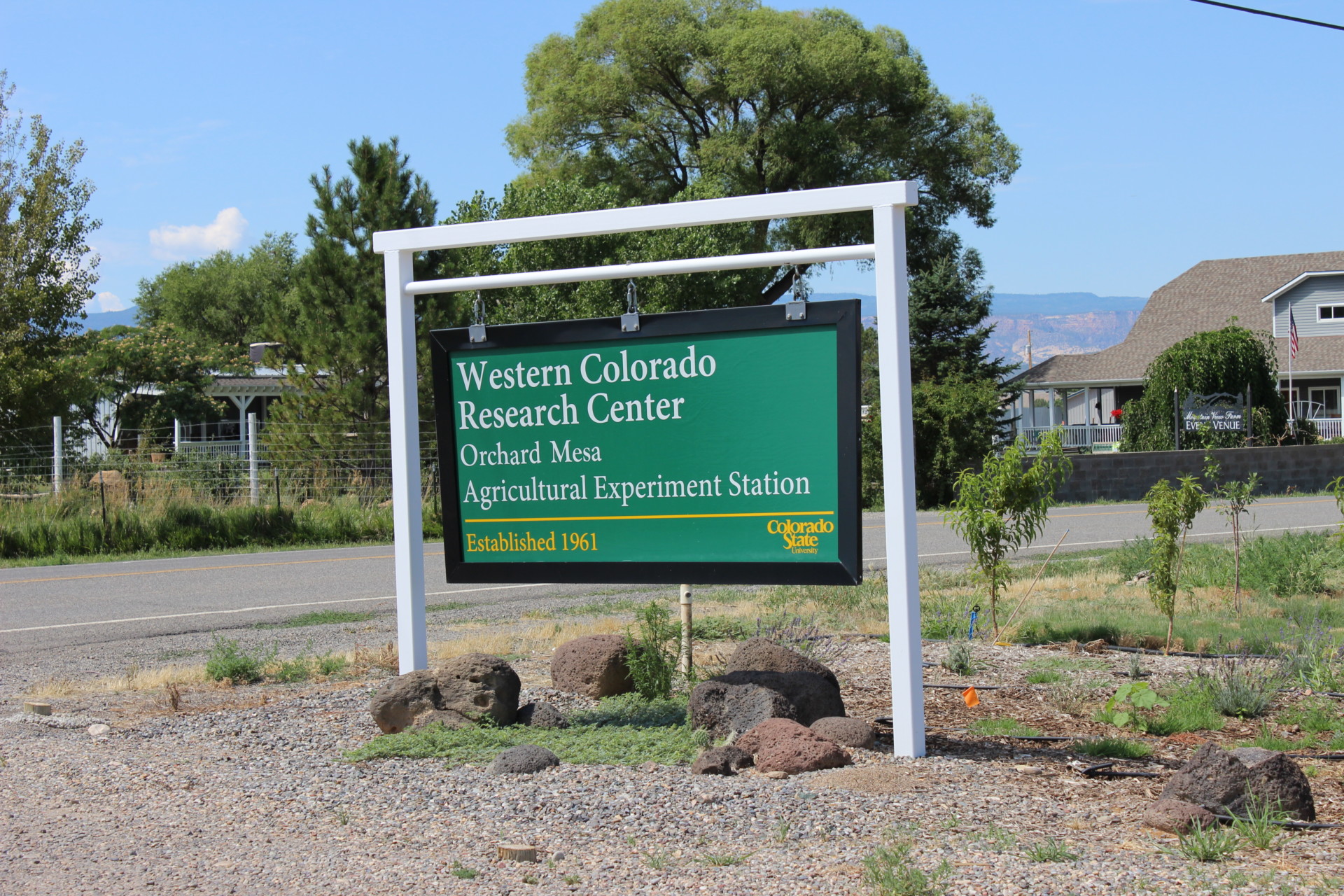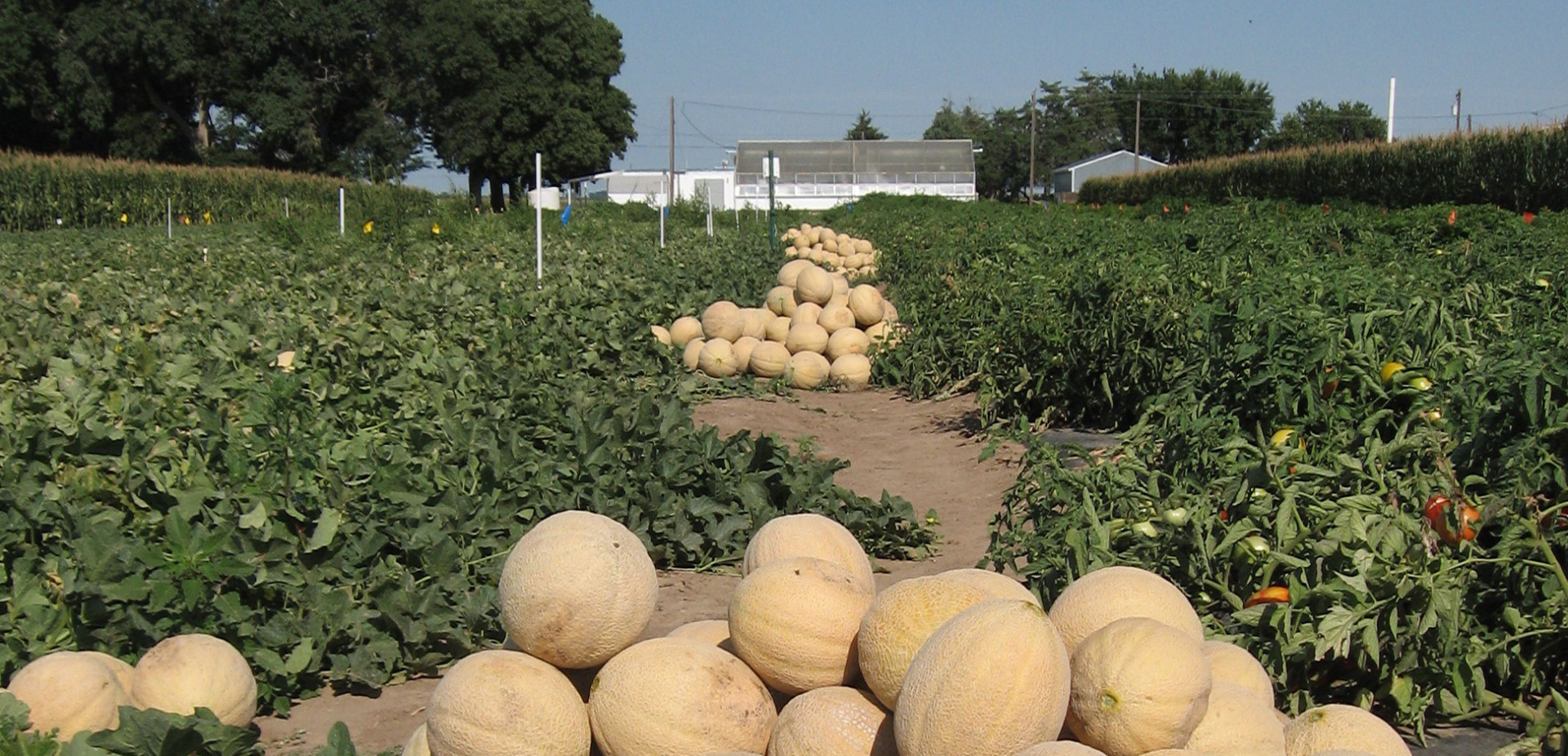
People who live in Colorado will soon have even greater access to the resources of Colorado State University, and better opportunity to interact with the state’s land grant university, because of CSU’s investment in two satellite campuses that serve research, extension and engagement for local communities.
The CSU Western Campus will be located at the university’s existing facility in Orchard Mesa, while the existing center in Rocky Ford will be the location of the CSU High Plains Campus. New and revamped facilities, along with bringing together multiple areas of expertise at both regional centers, will provide better access to CSU’s agricultural and natural resources research, Extension, Engagement, veterinary diagnostics, and the Colorado State Forest Service.
“Our goal is to better serve our constituents in eastern Colorado and on the Western Slope,” said Ajay Menon, dean of the College of Agricultural Sciences and director of the Colorado Agricultural Experiment Station. “These centers will ensure that our programs are more effective by pulling together our various areas of expertise and being much more efficient by putting our resources together to meet the needs of our local communities.”
Strong support by local and state leaders
In developing the two satellite campuses in Otero and Mesa counties, CSU is enhancing its commitment to regional economic vitality in rural Colorado by strengthening its partnerships with local, county and state governments.
“CSU has a strong commitment to agriculture across the state, and this is a testament to that commitment,” said CSU President Tony Frank. “The support of our state legislators and county commissioners has been remarkable and crucial to making these CSU centers a reality “We are extremely grateful for their innovative engagement in coming up with ways to best to use these facilities to really serve producers and the community.”
Last spring the Colorado Legislature approved $875,000 in new base funding in support of CSU’s vision for greater engagement in western Colorado and the eastern plains. This funding allows a combined $11.65 million investment in infrastructure improvements, such as new buildings and other facilities, at the two centers through debt financing.
“The support of local and state leaders was absolutely critical to making this happen and we are so grateful for their vision and support as we bolster our commitment to the necessity and importance of research in Colorado,” said Lou Swanson, CSU’s vice president for Engagement. “The state representatives and the county commissioners we’ve worked with have really catalyzed the state legislature by showing that these research and engagement centers are a great idea that’s worth funding because the centers will provide significant benefits to the people the Colorado.”

CSU Western Campus
The CSU Western Campus, located at CSU’s existing facility in Orchard Mesa, will provide administrative oversight and intellectual leadership for CSU’s agricultural experiment stations (AES) throughout western Colorado. Orchard Mesa will also house the CSU Extension western region office, the regional Veterinary Diagnostic Laboratory, and the regional Colorado State Forest Service office. The Rogers Mesa site near Hotchkiss will also be revamped and reopened.
The CSU Western Campus will see $9.7 million in site improvements and investments to facilities, including two new buildings: a $3 million Veterinary Diagnostic Laboratory and a $5 million Research and Engagement Building. The Research and Engagement Building will include office space, two conference rooms and a seminar room, and a commercial kitchen for engagement and Extension education.
Specific programs at the CSU Western Campus will include:
• Fruita AES Programs will focus more intensely on “Climate Smart Agriculture,” emphasizing optimal use of water amidst the pressures of municipal and industrial use, drought, climate change, and shifting market demands. These efforts will be broadly collaborative with AES, CSU Extension, and the Colorado Water Institute.
• Orchard Mesa AES Programs will continue to focus on pomology, viticulture, management of other specialty crops of local interest, and pest management.
• Rogers Mesa AES Programs at the reopened site will have an increased emphasis on engagement and Extension activities, and on community partnerships. Research activities will include comparative studies of organic and conventional production systems, with trials and demonstrations of innovative management practices developed in conjunction with the Orchard Mesa, Fruita and Yellow Jacket facilities.
• Yellow Jacket AES Programs will emphasize soil health and identifying crop species and varieties adapted to the high altitudes and semi-arid environment of southwestern Colorado. The crops to be studied include grasses, clovers, alfalfa, field peas, corn, potatoes, dry beans, sugar beets, small grains, and vegetables. Research will be conducted on both irrigated and dryland systems.

CSU High Plains Campus
The CSU High Plains Campus will serve the eastern plains from its home in Rocky Ford. The campus will house the regional Veterinary Diagnostic Laboratory, CSU Extension Southeastern Colorado regional personnel, and Otero County Extension personnel. The High Plains Campus will be the administrative home and intellectual leadership center for the agricultural experiment stations in the High Plains, including optimizing crop production systems, novel horticultural crop development, agricultural water efficiency, and agricultural water quality research.
Specific programs at the CSU High Plains Campus will include:
• Eastern Colorado (Akron) AES Programs will focus on beef cattle management with attention to cattle feeding and nutrition.
• Arkansas Valley (Rocky Ford) AES Programs will focus on irrigated crop production with a particular emphasis on optimal water use for specialty crops grown under irrigation, such as alfalfa, corn, dry beans, small grains, soybeans, sorghum, onions, melons, tomatoes, cucumbers, potatoes and peppers.
• Plainsman Research (Walsh) AES Programs will examine full and limited irrigation using furrow, sprinkler, and subsurface drip irrigation, as well as comparisons of various approaches to tillage such as no-till, ridge-till, conventional-till, and subsoiling. Crops include wheat, grain sorghum, forage sorghum, corn, sunflower, bean, canola and alternative crops.
At both centers, faculty and researchers from the College of Agricultural Sciences will continue to do the priority research of the Agricultural Experiment Station, along with colleagues from CSU’s other colleges.
Establishment of the new regional centers will also result in savings. The total saving is estimated to be approximately $39,500 each year as an additional positive outcome of CSU’s enhanced commitment to rural vitality, including a contemporary focus on agricultural sciences and natural resource management.
“In addition to infrastructure improvements and renovations at the site, we anticipate offering programs that will address the needs of farmers, ranchers, growers, and community members. CSU remains committed to supporting agriculture across Colorado, and the redevelopment of these facilities will allow us to enhance and expand our research, extension, and engagement activities,” Menon said.